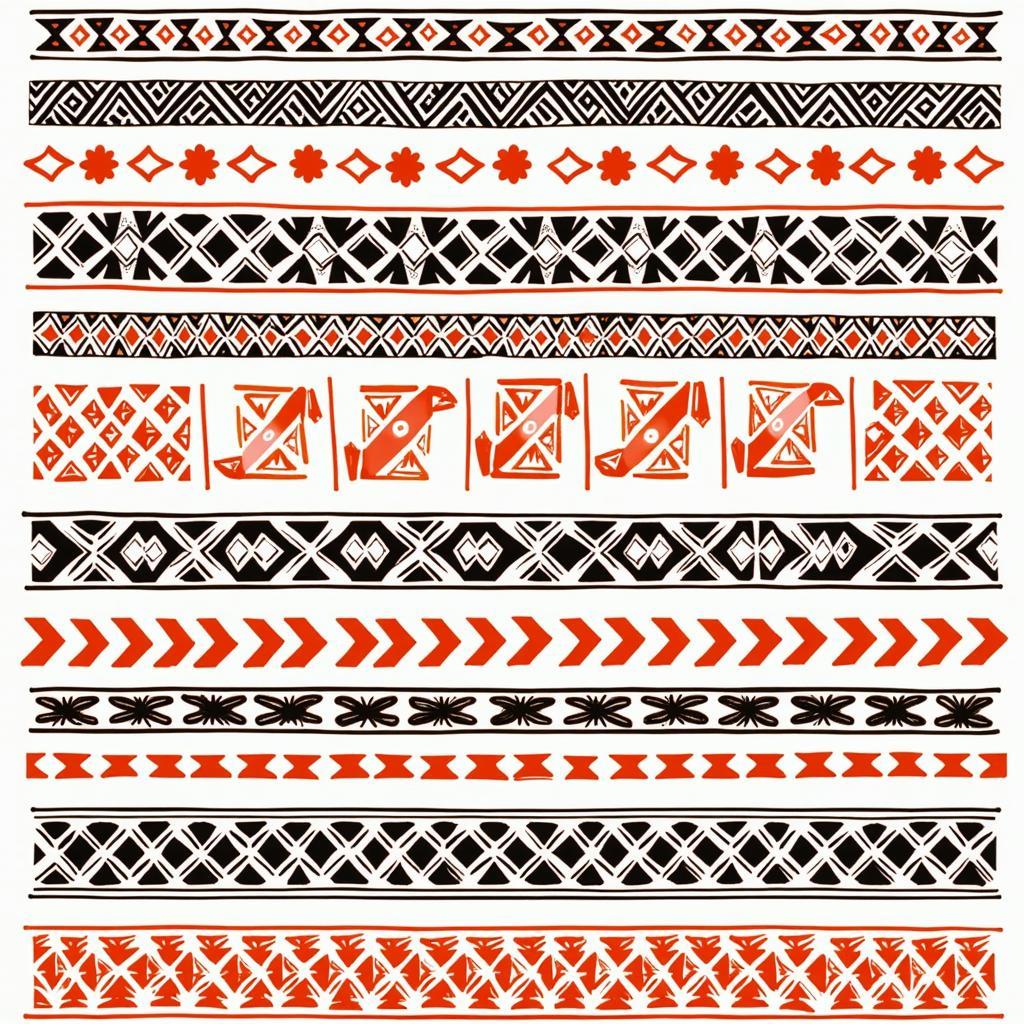The Enchanting World of African Plants: A Rich Tapestry of Life
African Plants, the very essence of the continent’s vibrant ecosystem, are a fascinating subject for exploration. These remarkable life forms, spanning from towering baobabs to delicate wildflowers, have captivated human attention for millennia. Their captivating beauty, diverse medicinal properties, and vital role in sustaining life have been a source of inspiration, wonder, and sustenance for generations.
A Kaleidoscope of Diversity: Exploring the Rich Variety of African Plants
Africa, a continent blessed with vast and varied landscapes, is home to a staggering array of plant species. From the lush rainforests of the Congo Basin to the arid savannas of the Serengeti, the continent’s diverse habitats are teeming with life. The sheer diversity of African plants is astounding, with estimates suggesting that the continent harbors around 10% of the world’s plant species.
A Glimpse into the World of African Plants:
- Trees: The iconic baobab, with its bulbous trunk and distinctive shape, is a symbol of resilience and cultural significance in many African communities. Other prominent tree species include the majestic acacia, the hardy shea nut tree, and the vibrant African cherry.
- Grasses: Savannas and grasslands are dominated by a variety of grasses, including the towering elephant grass, the resilient Rhodes grass, and the aesthetically pleasing blue grass.
- Shrubs: The African bush is a tapestry of diverse shrubs, including the medicinal aloe vera, the fragrant frankincense tree, and the hardy desert rose.
- Flowers: From the striking gladiolus to the cheerful cosmos, Africa is adorned with a breathtaking array of flowers. The iconic bird of paradise flower, with its vibrant colors and unique shape, is a symbol of beauty and paradise.
The Vital Role of African Plants in Sustaining Life
Beyond their aesthetic appeal, African plants play a vital role in the ecosystem and human life. They are a primary source of food, shelter, and medicine, contributing to the well-being and livelihoods of millions of people.
Essential Uses of African Plants:
- Food: Many African plants are staple food sources, including millet, sorghum, cassava, and maize. Fruits like mangoes, avocados, and pawpaws are enjoyed as delicious and nutritious treats.
- Medicine: Traditional African medicine relies heavily on plant-based remedies. Many plants have proven medicinal properties, treating a wide range of ailments.
- Shelter and Housing: Wood from trees like the acacia and baobab is used for building houses, furniture, and tools. The leaves of some plants are used for thatching roofs.
- Fiber and Textiles: Plants like cotton and sisal provide fibers for weaving into clothing, ropes, and other essential materials.
- Fuel and Energy: Wood from certain trees is used as fuel for cooking and heating. The biomass of plants is also used in biofuel production.
Unveiling the Cultural Significance of African Plants
African plants are deeply intertwined with the cultural traditions, beliefs, and practices of the continent’s diverse communities. They feature prominently in folklore, art, music, and spiritual practices, reflecting the profound connection between humans and the natural world.
Cultural Significance of African Plants:
- Folklore and Myths: Many African plants are central figures in traditional stories and myths, embodying cultural values and lessons.
- Art and Decoration: Plants inspire artists and craftspeople, serving as motifs in paintings, sculptures, and textiles.
- Ceremonies and Rituals: Certain plants are used in ceremonies and rituals, symbolizing fertility, purification, or protection.
- Medicine and Healing: Traditional healers often incorporate plants into their practices, drawing upon the therapeutic properties of these natural remedies.
Threats to the Survival of African Plants
Despite their incredible resilience and adaptability, many African plants are facing growing threats due to deforestation, climate change, and habitat loss.
Protecting African Plants:
- Conservation Efforts: Governments, organizations, and communities are implementing conservation programs to protect endangered species.
- Sustainable Practices: Promoting sustainable agricultural practices, responsible forestry, and ecotourism helps preserve plant biodiversity.
- Awareness and Education: Educating people about the value of African plants and the importance of their conservation is crucial.
Expert Perspective:
“As a botanist with over 20 years of experience studying African plants, I’ve witnessed firsthand the incredible diversity and resilience of these remarkable life forms. However, it’s crucial to acknowledge the threats they face and the urgent need for conservation efforts. We must work together to safeguard this invaluable part of our planet’s natural heritage.” – Dr. Amina Kabira, Botanist
Frequently Asked Questions
Q: What are some of the most famous African plants?
A: Some of the most famous African plants include the baobab, acacia, shea nut tree, aloe vera, and the bird of paradise flower.
Q: How are African plants used in medicine?
A: African plants are a cornerstone of traditional medicine, with many species possessing medicinal properties. For example, aloe vera is used to treat burns and skin conditions, while the bark of the African cherry tree is used to treat malaria.
Q: What are some of the threats to African plants?
A: African plants are facing threats from deforestation, climate change, and habitat loss due to human activities.
Q: What can I do to help protect African plants?
A: You can contribute to the conservation of African plants by supporting sustainable practices, reducing your environmental footprint, and raising awareness about the importance of biodiversity.
Interested in learning more about the wonders of the African plant kingdom? Explore our website for fascinating stories and in-depth information on specific plant species, medicinal uses, and cultural significance.

